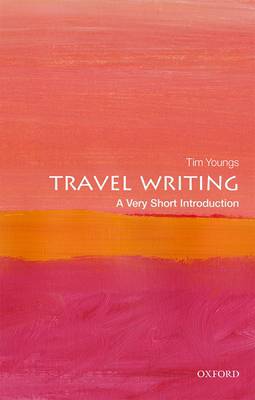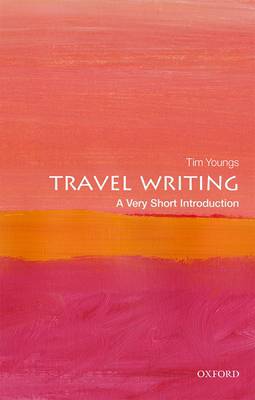
- Afhalen na 1 uur in een winkel met voorraad
- Gratis thuislevering in België vanaf € 30
- Ruim aanbod met 7 miljoen producten
- Afhalen na 1 uur in een winkel met voorraad
- Gratis thuislevering in België vanaf € 30
- Ruim aanbod met 7 miljoen producten
Zoeken
€ 15,45
+ 30 punten
Omschrijving
The history of travel writing goes back thousands of years. Long practised in several different cultures and languages around the world, it is as varied as the people who journey and their reasons for doing so. Pilgrims and atheists, agents of imperialism and revolutionaries, aristocrats and fugitive slaves, tourists and refugees, and scientists and artists, are all among its many types of author. Its different forms include the diary, letters, reports, guidebooks, journalism, poetry and blogs.. This Very Short Introduction examines the meanings and uses of travel writing from its appearance on clay tablets to the digital age. It shows how the genre not only describes places and the journeys to them, but also communicates the cultural and personal values of its authors, reinforcing and challenging their sense of identity and of the foreign. Tim Youngs discusses questions of the genre's definition and its literary forms, the representation of self and other, the effect of modes of transport on authors' experiences and their stories of travel, and attitudes towards the environment. Throughout he demonstrates how travel writing is a diverse genre that offers a full range of perspectives, often alert to its own processes and viewpoints, and one that casts a critical eye on its authors' home countries as well as on their destinations. ABOUT THE SERIES:
The Very Short Introductions series from Oxford University Press contains hundreds of titles in almost every subject area. These pocket-sized books are the perfect way to get ahead in a new subject quickly. Our expert authors combine facts, analysis, perspective, new ideas, and enthusiasm to make interesting and challenging topics highly readable.
The Very Short Introductions series from Oxford University Press contains hundreds of titles in almost every subject area. These pocket-sized books are the perfect way to get ahead in a new subject quickly. Our expert authors combine facts, analysis, perspective, new ideas, and enthusiasm to make interesting and challenging topics highly readable.
Specificaties
Betrokkenen
- Auteur(s):
- Uitgeverij:
Inhoud
- Aantal bladzijden:
- 144
- Taal:
- Engels
- Reeks:
Eigenschappen
- Productcode (EAN):
- 9780198794110
- Verschijningsdatum:
- 1/11/2024
- Uitvoering:
- Paperback
- Formaat:
- Trade paperback (VS)
- Afmetingen:
- 3 mm x 3 mm

Alleen bij Standaard Boekhandel
+ 30 punten op je klantenkaart van Standaard Boekhandel
Beoordelingen
We publiceren alleen reviews die voldoen aan de voorwaarden voor reviews. Bekijk onze voorwaarden voor reviews.











